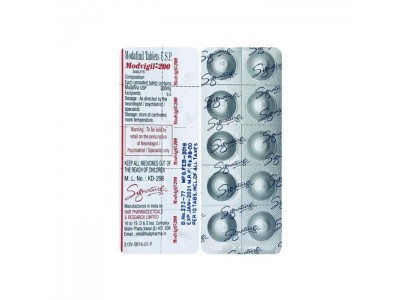Frequent use of Modvigil, a brand name for modafinil, can lead to several potential negative effects. Modafinil is a wakefulness-promoting agent typically prescribed for conditions like narcolepsy, sleep apnea, and shift work sleep disorder. While it is generally well-tolerated when used as prescribed, frequent or long-term usage can result in adverse effects.
Read also best online pharmacy in france.
One of the common side effects of modafinil is insomnia, as its stimulant properties can interfere with normal sleep patterns if taken too late in the day. This can lead to a cycle of sleep deprivation and further reliance on the medication. Other common side effects include headaches, dizziness, nausea, and nervousness. These effects can range from mild to severe and may impact daily functioning.
Cardiovascular issues such as increased blood pressure and heart rate have also been reported with modafinil use. For individuals with preexisting heart conditions, this can pose significant health risks. Frequent use can exacerbate these cardiovascular side effects, leading to more serious complications.
Psychiatric symptoms can be another concern. Some users may experience anxiety, agitation, or mood swings. There have also been reports of severe side effects like hallucinations, mania, or suicidal thoughts, particularly in individuals with a history of mental health disorders.
Dependence and abuse potential, though considered low compared to other stimulants, can still be an issue. Over time, the body may develop a tolerance to modafinil, requiring higher doses to achieve the same wakefulness effect. This can lead to misuse and potential dependency, with users relying on the drug to stay alert and focused.
Additionally, frequent use of modafinil can interfere with other medications. It can affect the liver enzymes responsible for metabolizing various drugs, leading to potential interactions and altered efficacy of other treatments.
Given these potential negative effects, it is crucial to use modafinil under the guidance of a healthcare provider, adhere to prescribed dosages, and undergo regular monitoring to mitigate risks and manage any adverse effects.
